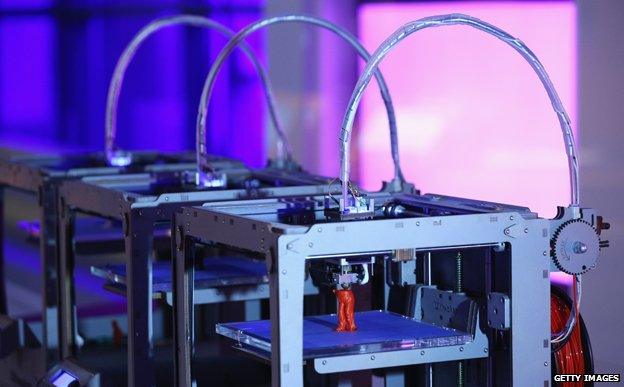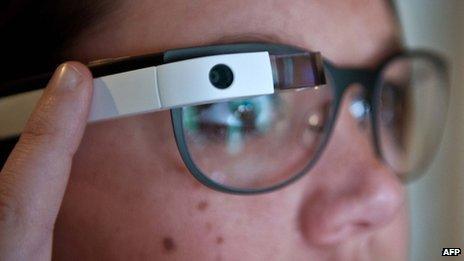Hype and hi-tech
- Published
- comments

Predicting the future shape of technology is a fool's game. If you believed the forecasts of future-gazers when I was growing up, we would all be taking holidays on the moon, consuming our meals in tablet form and enjoying a 10-hour working week by now.
And even very recent predictions seem to be going awry. Figures last week from Apple showed iPad sales slowing, and growth in the overall tablet market is looking less than spectacular, so the idea that the conventional desktop PC is in its death throes now seems to be a bit oversold.
Nevertheless, Radio 4's The World At One is taking the brave step of trying to forecast the hot technology trends that we all need to know about. Over the next few days, the programme will look at 3D printing, drones, unmanned cars and the internet of things and ask how these advances might change our lives.
But to inject a healthy dose of scepticism, the series begins today with a look at the Hype Cycle. This is an exercise carried out by the research firm Gartner which has a theory about the way new technology arrives in our lives. The firm describes five stages through which new ideas progress - the innovation trigger, the peak of inflated expectations, the trough of disillusionment, the slope of enlightenment, and finally the plateau of productivity.
Last year's Hype Cycle had 3D printing and wearable user interfaces, external at an overexcited peak though both were expected to mature into profitable technologies. Biometric identification and speech recognition were much further along, climbing up onto that plateau of productivity.
Looking back, some technologies - supersonic travel for instance - have never really delivered on the overhyped expectations of their backers. Will that be the case for some of the ideas now being touted as game changers?

I've been convinced for a while that wearable technology is the next big thing, but a few doubts have begun to creep in. None of the products that I've tried so far, from Google Glass to Samsung's latest smartwatch, has convinced me that the wearable revolution is yet ready to reach beyond a minority of enthusiasts.
Virtual assistants, such as Apple's Siri and Microsoft's Cortana, are becoming ever more sophisticated, benefitting from the advances in speech recognition and natural language processing. But they still fail a basic test - for most people they are still a gimmick rather than a really useful addition to their lives.
And for all the hysteria about big data, companies and governments are still proving better at imagining how this will improve our lives than giving us concrete examples of where that is happening.
Of the four technologies chosen by the World At One, I would bet on the Internet of Things having the most impact in the short term. Billions of objects - from cars, to mousetraps to dustbins - are being hooked up to the internet. That should mean cities work more efficiently - and businesses can sell us their products more effectively.
Then again, that could all turn out to be a lot of hype. Tune in to the World at One all this week to find out more.